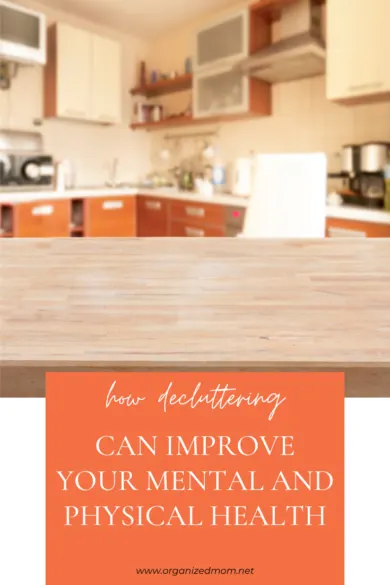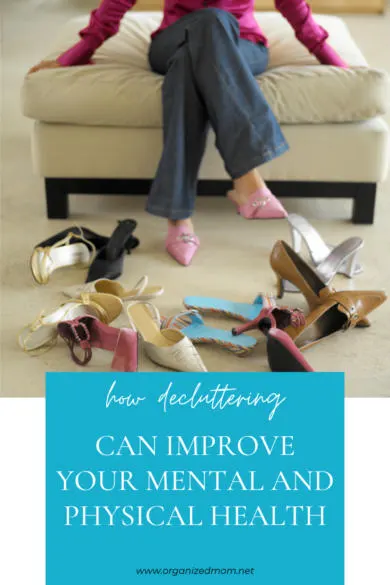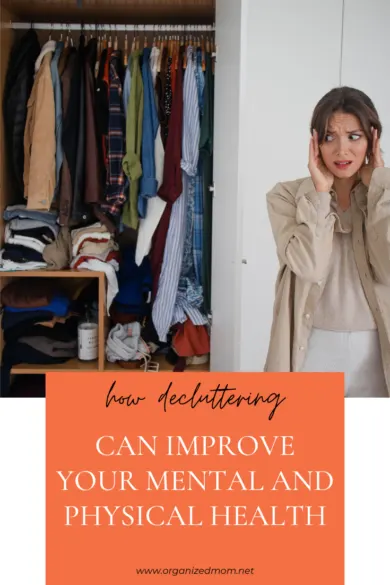Have you ever thought about decluttering your home? It’s more than just getting rid of things, it’s about creating a space that is functional, comfortable, and visually pleasing for you and your family.
Decluttering can have some amazing benefits for both your mental and physical health. It can free up space in your home, reduce stress and anxiety, and even improve air quality. It can also improve your mood and increase productivity.
Next time you’re feeling overwhelmed by the clutter in your home, take some time to declutter and see how it positively impacts your well-being. It will be worth your time.
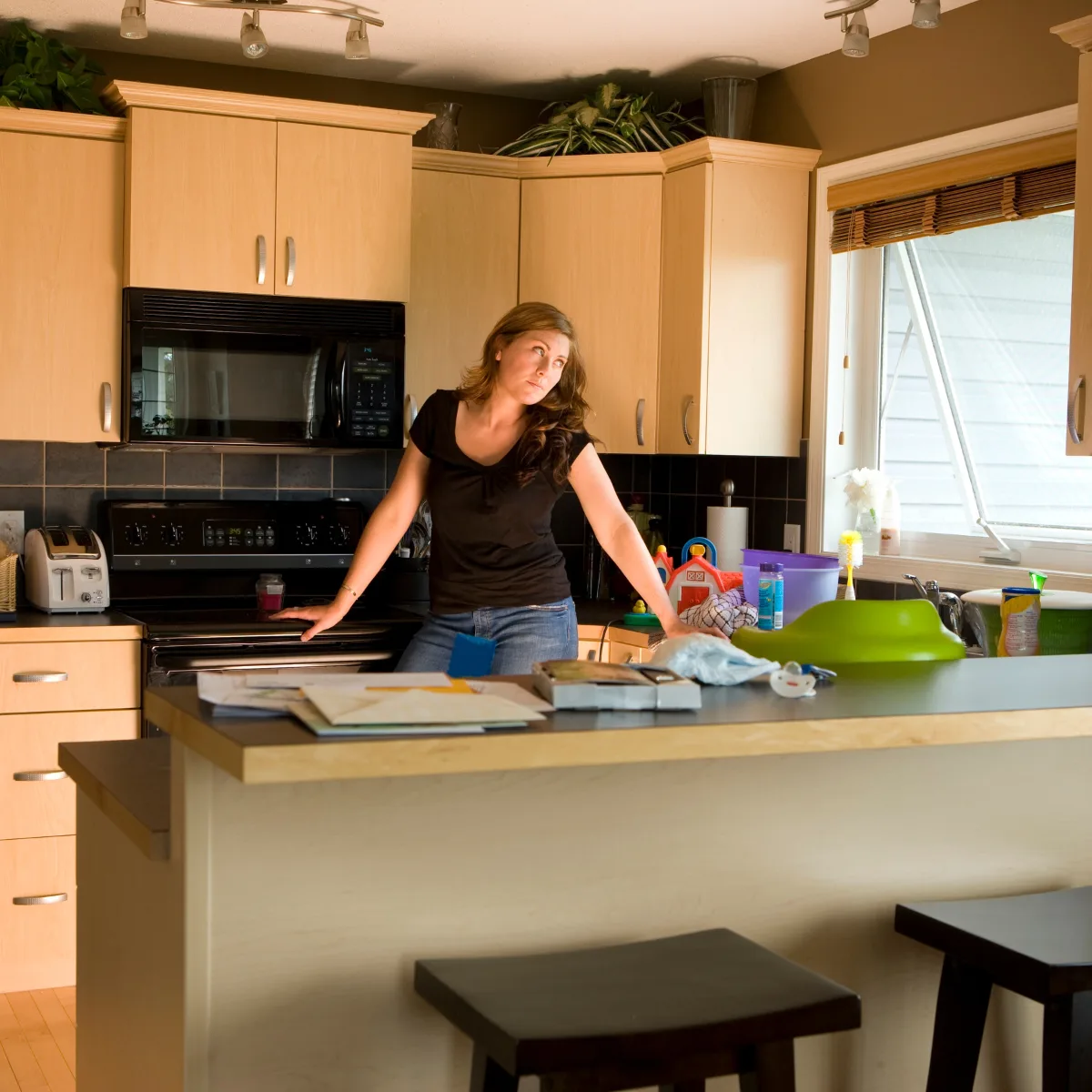
Mental Health Benefits Of Decluttering
Decluttering can have a significant impact on mental health! One of the main benefits is improved mood and reduced stress (doesn’t that sound amazing). A cluttered living or work space can create feelings of chaos, which can lead to stress and anxiety. When you declutter you are able to create a more organized and visually pleasing environment, which can help reduce feelings of stress and improve overall mood.
Another benefit of decluttering is increased productivity and focus. When your space is cluttered, it can be difficult to focus on tasks at hand. Decluttering allows you to clear away distractions and create a more conducive work environment, which can lead to increased productivity and focus.
Better sleep is also another benefit of decluttering. A cluttered bedroom can make it difficult to relax and get a good night’s sleep. Decluttering your bedroom can create a more peaceful and comfortable environment, which can lead to better sleep. Decluttering can also help you create a bedtime routine by making sure everything is in its place and ready for bed.
Decluttering can have a positive impact on your mental health by improving mood, reducing stress, increasing productivity, and helping you sleep better. By creating a more organized and visually pleasing living and work space, you can improve your overall well-being and feel better mentally.
Physical Benefits Of Decluttering
Decluttering can also have a positive impact on physical health. One of the main benefits is the reduced risk of injury from cluttered spaces. A cluttered living or work space can create tripping hazards and make it difficult to move around, which can increase the risk of accidents such as falls. Decluttering allows you to clear away these hazards and create a safer living and work environment.
Another benefit of decluttering is improved air quality. A cluttered space can trap dust and allergens, which can affect air quality and contribute to respiratory problems. Decluttering allows you to clear away dust and allergens, and improve air quality and reduce the risk of respiratory problems.
Increased physical activity is also another benefit of decluttering. A cluttered space can limit your ability to move around, which can make it difficult to engage in any sort of physical activity. Decluttering allows you to create more space, which can make it easier to move around and engage in physical activity. Additionally, decluttering can make it easier to organize sports equipment, workout clothes, and other items needed for physical activity, making it more likely to be used.
Decluttering can have a positive impact on physical health by reducing the risk of injury, improving air quality, and increasing physical activity. By creating a more organized and functional living and work space, you can improve your overall well-being and feel better.
Getting Started With Decluttering
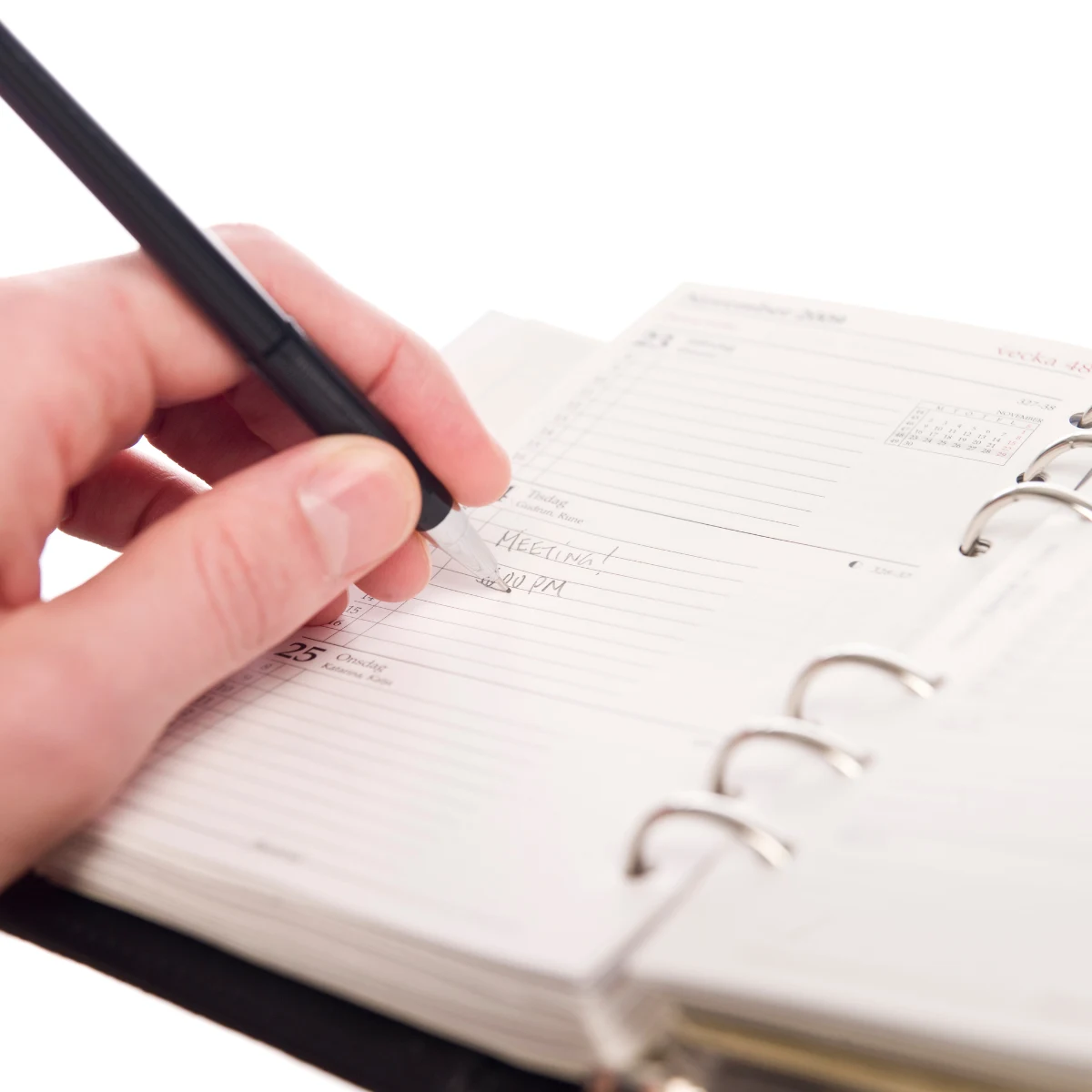
Getting started with decluttering can be overwhelming, but by setting goals, prioritizing items, and implementing a system, it becomes manageable.
Setting goals is crucial in decluttering process. Setting specific and realistic goals, such as decluttering a specific room or area in a certain amount of time, can help you stay focused and motivated.
Prioritizing items to keep and items to discard is important. Evaluate each item and determine whether it brings value to your life or not. It’s helpful to create a “keep,” “toss,” and “donate” pile while decluttering. Keep the items that you use regularly, bring joy, or have sentimental value; toss the items that are broken, expired or no longer needed; and donate items that are in good condition but no longer needed.
Implementing a system for maintaining a decluttered space is crucial. After decluttering, it’s important to establish a system that helps you keep the space organized and free from clutter. This can include regularly going through your possessions, creating designated storage spaces, and setting up a schedule for decluttering.
The key to successful decluttering is to set goals, prioritize items, and implement a system for maintaining a decluttered space. By following these tips, you can create a functional, comfortable, and visually pleasing living and work space, which can improve your mental and physical health.
Bottom Line
Decluttering is essentially the process of getting rid of unnecessary items in your home or workspace. It can have a significant impact on both mental and physical health, by improving mood, reducing stress, increasing productivity, and helping you sleep better. It also can reduce the risk of injury, improve air quality, and increase physical activity.
Decluttering can be overwhelming at first but by setting goals, prioritizing items, and implementing a system, it becomes manageable. The key to successful decluttering is to set goals, prioritize items, and implement a system for maintaining your newly decluttered place. By following these tips, you can create a functional, comfortable, and visually pleasing living and work space, which can improve your mental and physical health.
Decluttering is a simple and effective way to improve your overall well-being. Start small and work your way through your home or workspace. You’ll be surprised at the positive impact it can have on your mental and physical health. So, take the first step today and start decluttering to improve your overall well-being.

